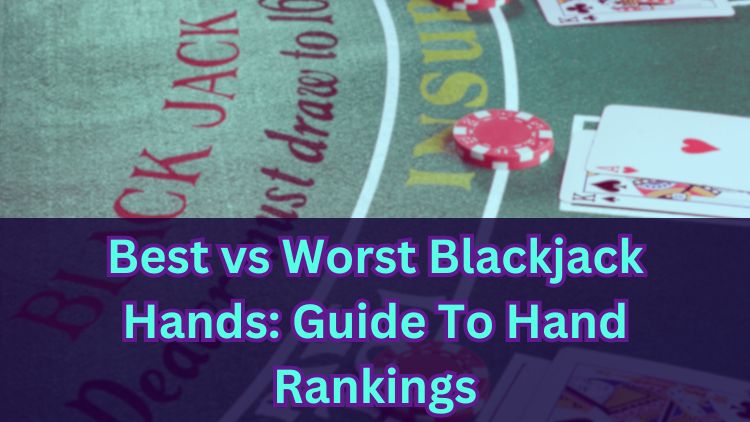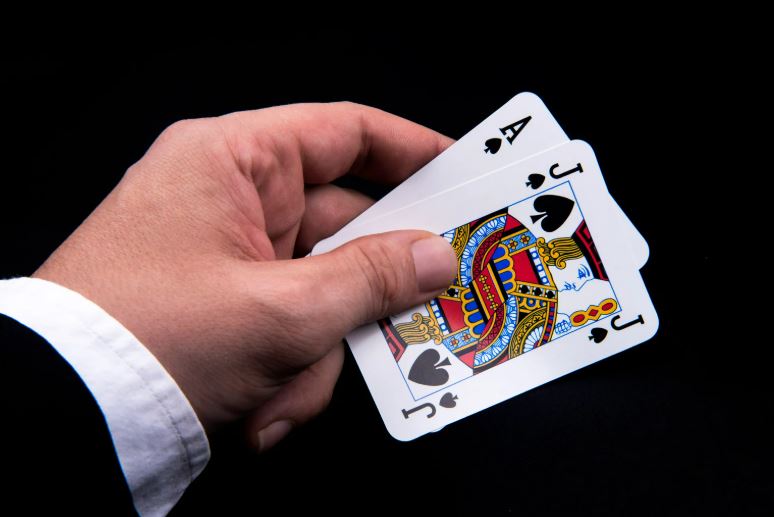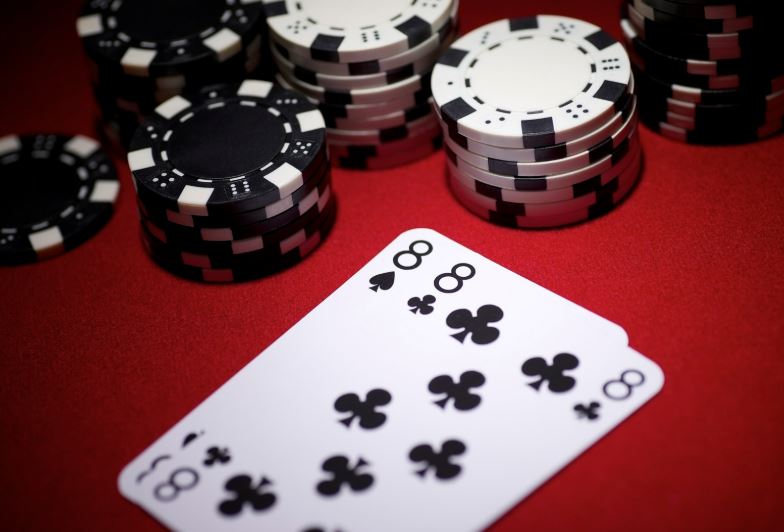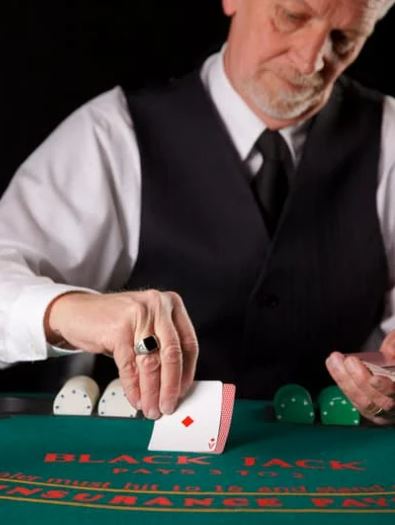
Blackjack is one of the most well-known casino games, but working out which hands are better than others isn't always obvious. Understanding which card combinations are strong or weak could shape your decisions, both online and at traditional casinos.
If you want to know which hands put you in the best position, or which ones to be mindful of, this guide aims to help. Rules can differ between casinos and online platforms, so knowing the basics gives you a good starting point.
Let’s look at how hands are ranked, what makes some hands stand out—for better or worse—and why something as ordinary as a pair can carry more weight than you might expect. Read on to learn more.
Blackjack Hand Rankings Explained
Blackjack is played with ordinary playing cards. The aim is simple—get a hand as close to 21 as possible, but do not go over. Number cards (2 to 10) are counted as their number, face cards (jack, queen, king) are worth 10,  and aces can be either 1 or 11, whichever helps the hand best.
and aces can be either 1 or 11, whichever helps the hand best.
The most valuable hand, often called a “blackjack” or “natural,” is an ace with any 10-point card (10, jack, queen, or king) dealt as your first two cards. In most games, this pays 3:2, so a £10 bet pays £15 if you get a blackjack. If you make 21 using three or more cards, it’s still a winning hand but not a true blackjack—meaning even money is paid rather than the higher rate.
Any hand below 21 is valued by simply adding up your points. For example, seven and eight is 15. If you go above 21, you bust and lose that round.
Keep in mind, the ways that blackjack hands are valued can change slightly depending on the rules of the game and where you play. Some versions might use more than one deck or offer choices like splitting or doubling down. It could be helpful to check the rules of each version so you know exactly how hands are ranked.
Players should always remember to gamble responsibly and within their means- never wager more than you can afford to lose.
What Are the Best Blackjack Hands?
The highest ranking in blackjack is a natural—a two-card hand of an ace and a 10-point card. Possible combinations include ace with king, queen, jack, or ten. This outcome only happens about 4.8% of the time in a single deck game.
Close behind is a two-card total of 20, made from two ten-point cards, such as a pair of kings or a ten with a queen. While not matching the value of a blackjack, a total of 20 gives the dealer little chance to beat you.
Some hands, called “soft” hands, also stand out—such as an ace with a nine (soft 20) or an ace with an eight (soft 19). The ace lets you adjust its value, making these hands strong and adaptable if you draw again.
Remember, blackjack variants online or at physical casinos may have small rule differences. For payout rates and options, you could refer to the information provided by the specific casino before you play.
What Is Considered a Bad Hand in Blackjack?
Any hand that risks taking you over 21 with one more hit is difficult to play. Totals between 12 and 16 are known for being especially awkward. If you draw another card, you might bust. If you decide to stick, you could still lose to the dealer’s hand.
A total of 16, such as a 10 and a 6, is often called a “stiff” hand. If you draw with 16, your chance of going bust is over 60%. Similarly, hands like 15 (for example, a 10 and a 5) put you in a tough spot.
Low pairs and other combinations such as 5 and 7 usually only stand a chance if the dealer busts.
Rules often change slightly from place to place or on different online games, so it could be wise to check for features such as double downs, splits, or surrender before you start.
Why Does a Pair of Eights Matter So Much?
A pair of eights makes 16—a tricky hand for any player. The main reason this pair gets attention is that it gives you the chance to split, which means dividing your eights to form two new hands. Each hand gets an extra  card after splitting, giving you new opportunities you wouldn’t have had if you kept the original 16.
card after splitting, giving you new opportunities you wouldn’t have had if you kept the original 16.
By splitting the eights, you move away from a “stiff” total and could play towards a much better outcome, especially if you get a 10-point card on at least one of your new hands.
When Should You Split Eights in Blackjack?
Splitting eights is an option in almost every UK casino—and it is usually recommended regardless of the dealer’s upcard. This is because splitting allows you to escape from the original 16 and start two new hands that each have a better chance than playing the 16 as it is.
The details can depend on house rules, like how many times you’re allowed to split or which cards can be split at all. Splitting also means you need to place another bet for your second hand, so it could be wise to be aware of your balance.
Is 16 Always a Bad Hand in Blackjack?
A total of 16 is widely known for being awkward. Whether this hand is especially difficult depends on what cards the dealer is showing, and whether options like surrender are available. In some games, surrender allows you to lose only half your stake rather than risk your full bet, which can reduce the trouble a 16 usually brings.
How the 16 is made up matters too. If it’s made up of a pair (like two eights), splitting can be a better route. If not, you might be limited to hitting, sticking, or surrendering, depending on the game's features.
With a bust probability of about 62% if you hit on 16, caution could be wise.
How Does the Dealer’s Upcard Affect Your Hand Ranking?
The dealer’s upcard—one card shown face-up—makes a difference to your decisions. Your hand’s value stays the same, but how you play that hand can change depending on what the dealer shows. 
If the dealer’s upcard is from 2 to 6, they run a higher risk of busting. Hands that seem weak on their own, like 12 or 13, can be played differently in this case because the dealer might go over 21. If the dealer shows a 7, 8, 9, 10 or ace, their likelihood of getting a strong hand increases, making even hands like 17 or 18 feel less secure for you.
The impact of the upcard can change slightly between games, as rules on the number of decks and dealer actions are not always the same.
Play Casino Games Online at Pay By Mobile Casino
Pay By Mobile Casino is a straightforward way for UK players to enjoy casino games with added convenience. Signing up is quick, and your personal details are protected. The site is set up for easy use whether you access it on your mobile, tablet, or computer.
You can deposit funds using your mobile phone bill or pay-as-you-go credit—there’s no need to repeatedly enter card details. There’s a selection of casino favourites, including blackjack and slot games with different themes.
All game rules, payment methods, and information about playing responsibly are clearly explained on the site, so you always know what to expect. Our customer service team is ready to help if you have questions about games, payments, or if you need support. Always remember to gamble responsibly and within your means.
**The information provided in this blog is intended for educational purposes and should not be construed as betting advice or a guarantee of success. Always gamble responsibly.
*All values (Bet Levels, Maximum Wins etc.) mentioned in relation to these games are subject to change at any time. Game features mentioned may not be available in some jurisdictions.
